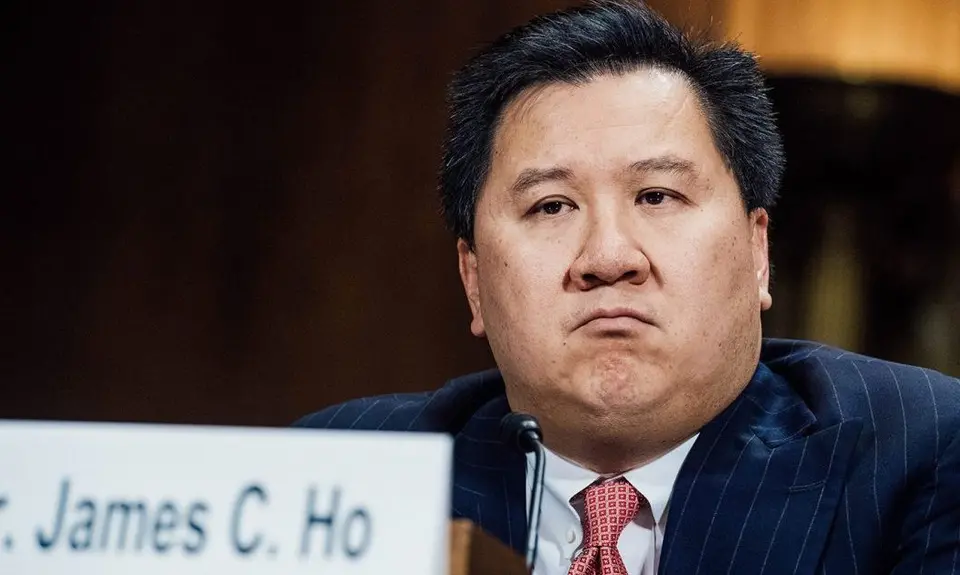“Confirmed Judges, Confirmed Fears” is a blog series documenting the harmful impact of President Trump’s judges on Americans’ rights and liberties. Cases in the series can be found by issue and by judge at this link.
Trump Fifth Circuit Judge James Ho, joined by Trump judge Kyle Duncan and several others, argued in dissent that the full court should vacate a three-judge court ruling and hold that an important rule to help implement the Affordable Care Act (ACA) was invalid under the long-discredited nondelegation doctrine. The majority, including judges nominated by President Trump and other Republican presidents, denied rehearing in its April 2021 order in State of Texas v Rettig.
To help implement the landmark ACA and its related changes to Medicaid, the federal government made alterations to various rules concerning its reimbursement of state Medicaid costs. This included changes to the so-called Certification Rule, under which reimbursement rates must be certified by professionally qualified actuaries who follow standards established by the Actuarial Standards Board (“Board”) of the American Academy of Actuaries. When the Board made changes in 2015 to its standards to comply with the ACA mandate that reimbursement rates account for all costs and be “actuarily sound,” Texas and several other states sued, claiming that the government had violated the constitution because the Certification Rule effectively and improperly delegated authority to the Board. The claim was based on the nondelegation doctrine, a discredited pre-New Deal theory that severely limits Congress’ authority to delegate rulemaking authority to agencies and that, if implemented today as some right-wing judges have threatened, would mean that “most of government is unconstitutional,” as explained by Justice Elena Kagan.
The case was considered by a very conservative district judge who later voted to strike down the ACA, and he ruled partly for Texas and the other states in 2018. He invalidated the Certification Rule under the nondelegation doctrine, and also ordered that provider fee payments of more than $470 million be returned to the states. The federal government appealed.
A three-judge panel consisting of judges all nominated by Republican presidents, including Trump judge Don Willett, considered the case. The panel reversed the lower court ruling that the Certification Rule was invalid because the Department of Health and Human Services (HHS) had “unlawfully delegated authority to the Board when it promulgated” the rule. Eleven Fifth Circuit judges rejected reconsideration of the panel’s decision, including judges nominated by Trump and other Republican presidents.
Trump judge Ho, however, wrote a harsh dissent, joined by Trump judge Duncan and three others. According to Ho, the “text and original understanding” of the Constitution mandate that Congress not “delegate” lawmaking authority to administrative agencies like HHS. In this case, Ho claimed, the agency had gone even further and committed an improper “double delegation” by using the Certification Rule to delegate such authority to “purely private” actors, the Board, “wholly unaccountable to the people.” Ho acknowledged that “since 1935, the [Supreme] Court has uniformly rejected nondelegation arguments,” but severely criticized the panel because it “extends precedent unnecessarily, in a strained effort to uphold the uniquely unlawful delegation challenged here,” rather than rejecting it under the nondelegation doctrine.
The conservative three-judge panel, while not commenting on the nondelegation principle itself, had squarely rejected such arguments for applying it here. An agency like HHS “does not improperly subdelegate its authority”, the panel explained, when it “reasonably conditions federal approval on an outside party’s determination of some issue,” particularly a specialized and technical subject like the reimbursement rates in this case. Based on past precedent and the facts in this case, the panel concluded that HHS’ conditions were “reasonable.” And even if what HHS did could be considered subdelegation of authority, the panel went on, past precedent made clear it is lawful because HHS retains “final reviewing authority.” Accepting the states’ arguments to the contrary, the panel noted, “would jeopardize over a thousand regulations promulgated by federal agencies.”
Right-wing advocates who have long been pushing for revival of the nondelegation doctrine have already promoted Ho’s dissent. One such advocate recently praised Ho and the judges who joined the dissent who “embraced” a “central plank of originalism” in the dissent, and pushed for other federal appellate judges to “sign onto Judge Ho’s cogent analysis” so that the results will “trickle up to the Supreme Court.” Trump nominee Gorsuch has already expressed interest in the nondelegation doctrine. The danger of widespread adoption of Ho’s radical theory by courts dominated by Trump judges emphasizes the importance of President Biden and the Senate promptly filling federal judicial vacancies with fair-minded constitutionalists with a demonstrated commitment to equality and justice for all.
